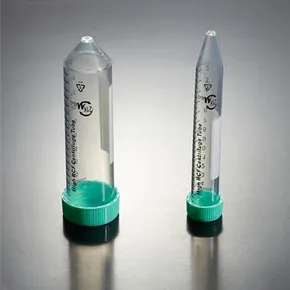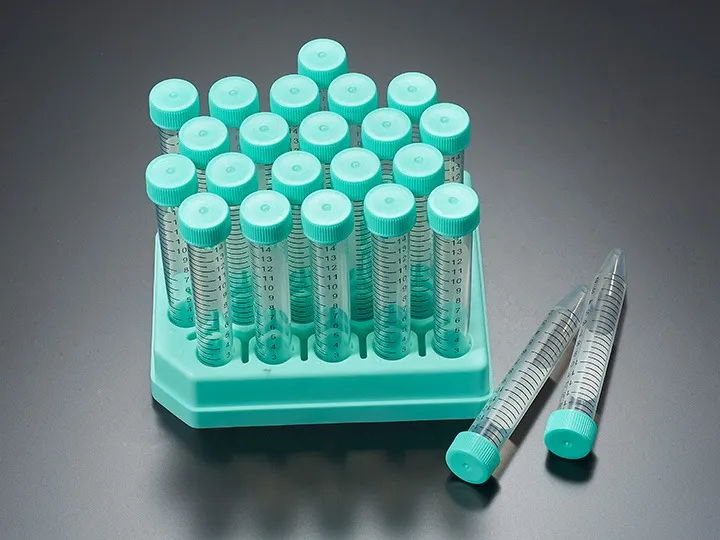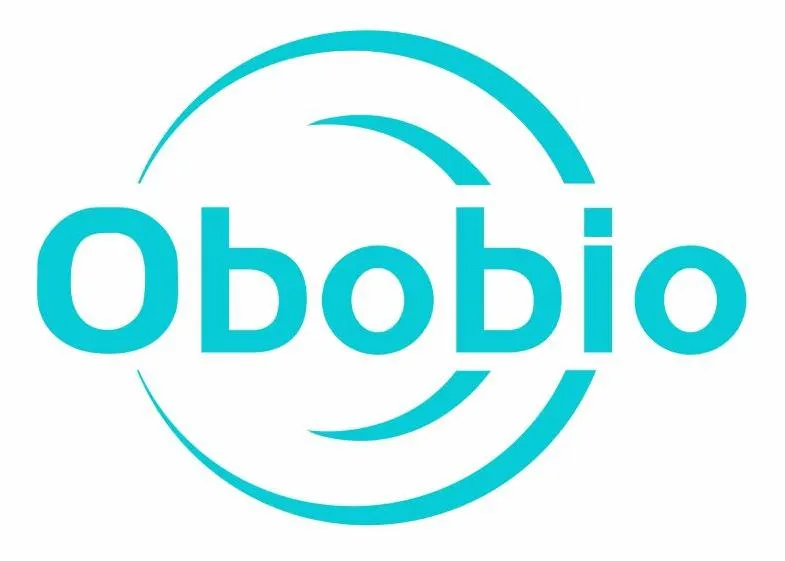Looking for a reliable centrifuge tube supplier can feel overwhelming, especially with the market growing rapidly to $2.74 billion by 2031. However, finding the right supplier is crucial for your laboratory’s success and research quality. So, how do you choose the best centrifuge tube supplier for your specific needs?

Quick Reference: Centrifuge Tube Supplier Selection Checklist
| Factor | What to Look For | Why It Matters |
|---|---|---|
| Material Quality | USP Class VI polypropylene or borosilicate glass | Ensures sample integrity and chemical resistance |
| Manufacturing Standards | ISO 9001:2000, Class 100,000 clean room production | Guarantees consistent quality and contamination-free products |
| Product Range | 0.5ml to 50ml volumes, various bottom types | Meets diverse laboratory requirements |
| Certifications | RNase/DNase-free, sterile options available | Essential for molecular biology applications |
| Lead Times | 1-2 weeks for standard orders | Prevents laboratory workflow disruptions |
| Customer Support | Technical assistance and application guidance | Helps optimize centrifugation protocols |

Table of Contents
What Makes a Centrifuge Tube Supplier Reliable?
A reliable centrifuge tube supplier combines consistent product quality, comprehensive certifications, competitive pricing, and excellent customer service. Therefore, these suppliers typically maintain strict manufacturing standards and offer technical support to help laboratories achieve optimal results.
Key Quality Indicators
First and foremost, look for suppliers who manufacture their products in Class 100,000 clean rooms with ISO 9001:2000 quality management systems. Additionally, reputable suppliers use high-grade materials like USP Class VI virgin polypropylene or borosilicate glass.
Moreover, quality suppliers provide detailed product specifications, including:
- Maximum RCF ratings for safe centrifugation
- Chemical compatibility charts for solvent resistance
- Temperature tolerance ranges for various applications
- Sterility certifications when required
How to Evaluate Centrifuge Tube Material Quality?
High-quality centrifuge tubes are made from biocompatible polypropylene (PP) or borosilicate glass, offering excellent transparency and chemical resistance. Plastic centrifuge tubes are typically made of biocompatible polypropylene (PP), providing high transparency and ensuring clear visibility of samples.
Plastic vs. Glass: Material Comparison
Polypropylene (PP) Tubes:
- Excellent chemical resistance to most solvents
- Autoclavable up to 121°C for sterilization
- Lightweight and shatter-resistant
- Cost-effective for routine applications
Borosilicate Glass Tubes:
- Superior optical clarity for precise measurements
- Inert surface prevents sample contamination
- High temperature resistance up to 500°C
- Ideal for critical analytical work
Furthermore, centrifuge tubes are produced in a Class 100,000 clean room, with ISO 9001:2000 quality management systems, with sizes typically ranging from 15ml to 50ml conical bottom centrifuge tubes.
What Are the Current Market Trends for Centrifuge Tube Suppliers?
The centrifuge tubes market is experiencing steady growth, with the global market expected to reach $2.74 billion by 2031, growing at a CAGR of 4.5%. The Centrifuge Tubes Market was USD 1.93 billion in 2023 and is expected to reach up to USD 2.74 billion by 2031, growing at a CAGR of 4.50%.
Market Growth Drivers
Several factors are driving this expansion:
- Increasing pharmaceutical research and drug development activities
- Growing biotechnology sector demand for quality consumables
- Rising diagnostic testing in clinical laboratories
- Expanding academic research in life sciences
Additionally, the market shows strong regional growth, particularly in:
- North America: Leading market due to advanced healthcare infrastructure
- Asia-Pacific: Fastest-growing region with increasing research investments
- Europe: Steady growth driven by pharmaceutical innovations
Which Certifications Should Your Centrifuge Tube Supplier Have?
Essential certifications include ISO 9001:2000 for quality management, USP Class VI for biocompatibility, and RNase/DNase-free certification for molecular biology applications. Consequently, these certifications ensure that your centrifuge tubes meet international standards for laboratory use.
Critical Certification Requirements
ISO 9001:2000 Quality Management:
- Ensures consistent manufacturing processes
- Guarantees product traceability
- Provides quality control documentation
USP Class VI Biocompatibility:
- Confirms material safety for biological applications
- Validates non-toxic plastic composition
- Essential for cell culture work
Sterility Certifications:
- Gamma sterilization for immediate use
- SAL 10^-6 sterility assurance level
- Individual sterile packaging options
Environmental Certifications:
- RoHS compliance for hazardous substance restrictions
- REACH registration for chemical safety
- FDA approval for clinical applications
How to Compare Centrifuge Tube Supplier Pricing?
Compare total cost of ownership, including product price, shipping costs, volume discounts, and potential quality-related expenses. Therefore, the cheapest option may not always provide the best value for your laboratory.
Pricing Factors to Consider
Volume-Based Pricing:
- Bulk discounts typically start at 1,000 units
- Annual contracts often provide 10-15% savings
- Just-in-time delivery options reduce storage costs
Hidden Cost Analysis:
- Shipping expenses for international suppliers
- Customs duties and import fees
- Quality failure costs from defective products
- Downtime expenses due to supply disruptions
Value-Added Services:
- Custom labeling and packaging
- Technical support and training
- Product customization options
- Rapid delivery for urgent orders
What Should You Ask Your Centrifuge Tube Supplier?
Key questions include product specifications, quality certifications, lead times, technical support availability, and return policies. Moreover, asking the right questions helps you evaluate supplier reliability and service quality.
Essential Supplier Questions
Product Quality Questions:
- What materials are used in manufacturing?
- Which quality certifications do you maintain?
- What is your quality control testing process?
- Can you provide certificates of analysis?
Service and Support Questions:
- What are typical lead times for standard products?
- Do you offer technical application support?
- What is your return policy for defective products?
- How do you handle urgent or rush orders?
Business Partnership Questions:
- What volume discounts are available?
- Do you offer annual supply agreements?
- Can you provide product customization?
- What payment terms do you accept?
Common Mistakes When Selecting Centrifuge Tube Suppliers
The most common mistakes include focusing solely on price, ignoring quality certifications, and failing to evaluate supplier reliability. Subsequently, these errors can lead to experimental failures, increased costs, and laboratory inefficiencies.
Costly Selection Errors
Price-Only Decision Making:
- Choosing cheapest options without quality verification
- Ignoring total cost of ownership calculations
- Overlooking hidden fees and charges
Inadequate Supplier Evaluation:
- Skipping reference checks with other customers
- Failing to verify manufacturing capabilities
- Not assessing customer service responsiveness
Quality Compromises:
- Accepting tubes without proper certifications
- Using incompatible materials for specific applications
- Ignoring maximum RCF specifications
Top Features to Look for in Centrifuge Tube Suppliers
Look for suppliers offering comprehensive product lines, technical expertise, reliable delivery, and excellent customer service. Additionally, these features distinguish professional suppliers from commodity vendors.
Must-Have Supplier Features
Product Excellence:
- Wide size range from 0.5ml to 50ml capacities
- Multiple bottom types (conical, round, flat)
- Various closure options (screw caps, snap caps, plug seals)
- Color-coding systems for sample organization
Technical Support:
- Application guidance for optimal results
- Centrifugation protocol recommendations
- Troubleshooting assistance
- Product training resources
Service Reliability:
- Consistent delivery schedules
- Real-time order tracking
- Emergency supply capabilities
- Flexible minimum order quantities
Future Trends in Centrifuge Tube Supply
Emerging trends include sustainable materials, smart packaging, digital ordering systems, and customized solutions for specific applications. Furthermore, suppliers are investing in eco-friendly alternatives and advanced manufacturing technologies.
Innovation Directions
Sustainable Solutions:
- Bio-based plastics from renewable resources
- Recyclable packaging materials
- Carbon-neutral shipping options
- Waste reduction programs
Digital Integration:
- Online ordering platforms with inventory management
- QR code tracking for product traceability
- Digital certificates and documentation
- Automated reordering systems
Advanced Materials:
- Enhanced chemical resistance formulations
- Improved optical clarity for better visibility
- Temperature-resistant compositions
- Anti-static properties for sensitive applications
Conclusion: Choosing Your Ideal Centrifuge Tube Supplier
Selecting the right centrifuge tube supplier requires careful evaluation of quality standards, certifications, pricing, and service capabilities. By focusing on these key factors, you can establish a reliable partnership that supports your laboratory’s success.
Remember that the best centrifuge tube supplier offers more than just products – they provide expertise, reliability, and support that enhances your research capabilities. Take time to evaluate potential suppliers thoroughly, and don’t hesitate to request samples before making large commitments.
Ready to find your perfect centrifuge tube supplier? Start by creating a requirements checklist based on your specific needs, then use this guide to evaluate potential partners systematically.
Frequently Asked Questions About Centrifuge Tube Suppliers
What is the typical lead time for centrifuge tube orders?
Standard lead times range from 1-2 weeks for stock items, while custom products may require 4-6 weeks. However, many suppliers offer expedited shipping for urgent requirements at additional cost.
How do I verify centrifuge tube quality from suppliers?
Request certificates of analysis, quality certifications, and product samples for testing. Additionally, check supplier references and review their manufacturing standards documentation.
What volume discounts are available from centrifuge tube suppliers?
Most suppliers offer tiered pricing starting at 1,000 units, with additional discounts at 5,000 and 10,000+ quantities. Annual contracts typically provide 10-15% additional savings.
Can centrifuge tube suppliers provide custom labeling?
Yes, many suppliers offer custom labeling, packaging, and even tube modifications for specific applications. However, customization usually requires minimum order quantities and longer lead times.
What should I do if I receive defective centrifuge tubes?
Contact your supplier immediately with documentation of the defects, including photos and batch numbers. Reputable suppliers will replace defective products and investigate quality issues promptly.
Are there eco-friendly centrifuge tube options available?
Yes, some suppliers now offer tubes made from bio-based or recycled materials. While these options may cost more initially, they support sustainability goals and may qualify for green procurement programs.
Ask for free sample today
🔐 Privacy respected. No spam. Ever.
